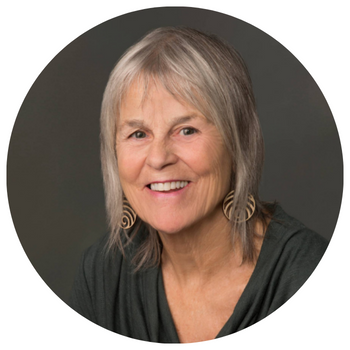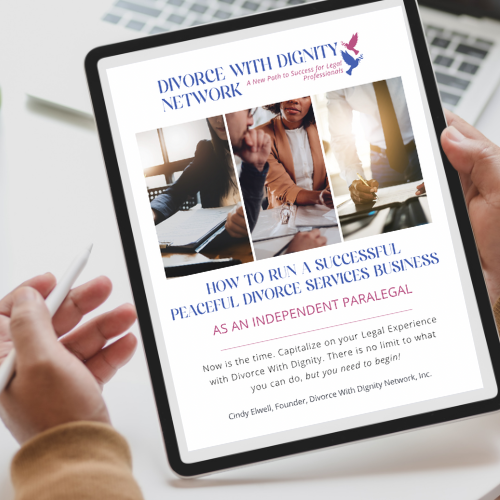Part of your success within the legal field relies on identifying trends within your industry. This way, you can provide your clients with the kind of services that are in high demand. While there is consistent work within mediation, divorces, and family law, studies suggest an ever-increasing demand for those providing ‘gray divorce’ services. That is tailored divorce support for older couples deciding to separate later in life.
What are gray divorces?
While the prominence of divorce within the 50+ population has been growing incrementally since the 1970s/80s, the term ‘gray divorces’ was not coined until 2004. This was likely due to an AARP publication, entitled ‘The Divorce Experience: A Study of Divorce at Midlife And Beyond,’ which focused on the impact of divorcing later in life – while also noting that it was becoming more and more frequent.
As the average age for divorcing sits around 30-35, the gray divorce demographic refers to those age 50 and above. While they initially made up for a tiny percentage of divorces annually (just 10% in 1990), they now dominate a large percentage of the legal market. For example, a recent study from Psychology Today states that gray divorce rates will have tripled by 2030.
What are the reasons for gray divorces?
There are various different reasons for divorce – at any age. As a legal professional, you must recognize this and realize that divorce is often caused by a variety of different triggers that coincide to create the ‘perfect’ marriage-ending storm.
Nevertheless, it’s important that you have an awareness of the whys behind the divorce itself – so that you can support your clients and help to keep things as peaceful and amicable as possible. Common causes of gray divorces include:
Changing Perceptions Of Marriage and Divorce.
In previous years, Divorces were looked upon as a sign of failure – particularly in a society where religious values were strictly upheld. As a result, many unhappy couples resolved to stay together instead of pursuing separation, even if this was not necessarily the best thing for them. However, societal attitudes have shifted over time, making divorce seem much more acceptable and attractive.
In fact, a study from the Journal of Family issues stated that ‘in people over 50 attitudes shifted to be more supportive of divorce from 1994 to 2012‘. Many psychologists attribute this shift to the idea that, as a society, we are more consumed than ever by the pursuit of personal happiness and satisfaction. As a result, couples of any age are no longer content to sit in a happy marriage when they know that there are better alternatives out there for them.
Empty Nest Syndrome.
Empty nest syndrome refers to changes in behavior and attitudes that result from children leaving the family home. In short, it refers to the time period where adult children begin to embark upon their own lives, leaving their parents behind. In many cases, parents have devoted so much of their time and energy to the family unit that they no longer know what to do when this occurs. As a result, they can undergo a great deal of emotional turmoil or feel their lives lack purpose and direction.
However, this can also have an incredibly negative effect upon relationships – with many couples discovering that they no longer have things in common. As a result, they may argue more frequently, leading to the dissolution of the marriage.
Infidelity.
According to the American Psychological Association, approximately 20-40% of divorces in the USA alone are the product of infidelity. While infidelity is often viewed as a ‘youthful’ issue within relationships, many studies have found it is rising significantly in the older population. In fact, a study from the General Social Survey determined that ‘those in their 50s and 60s were most likely to cheat‘ and that 20% of married people over the age of 55 have engaged in extramarital sex’.
We’re living longer than ever before.
It’s easy to note that as our life expectancy rises, so does the divorce rate. As a result, marriages are also much longer than they once would have been – which leaves more room for troubles to arise, be they related to infidelity, finances, or simply growing apart over time. Whatsmore, it’s also important to remember the societal changes occurring during our lifetimes. For example, women have more agency than ever before – which means they are also instigating divorces much more frequently than noted in previous generations.
How can you help clients divorcing after the age of 50?
As a Divorce with Dignity Provider, you will be able to tailor your support to those divorcing after the age of 50, making the process as easy as possible for everyone involved. However, studies suggest that the longer a couple is together, the more complex the divorce process will be; it’s essential to understand that your work is cut out for you.
Here are some simple ways in which you can help your clients!
- Take care to explain all legal processes. When you dedicate your career to family and divorce law, it’s easy to forget that others do not understand the legal processes – especially if they never expected to find themselves in this situation. As a result, you must take the time to explain their options to them. You should also clarify that most divorces do not belong in court, especially if they want to remain as cordial as possible.
- Focus on facilitating a peaceful divorce. Clients of any age will appreciate the grace that comes with facilitating a peaceful divorce – as it means they can part with their spouse on good terms. It can also be a way to reduce the expenses associated with divorce, which may be particularly important for those who are a little older or retired. In fact, a study from the Social Security Administration found that ‘20% of divorced women 65 or older live in poverty and are less financially secure than married or widowed adults‘.
- Signpost them to the appropriate support networks. As mentioned previously, the emotional impact of divorcing later in life can be severe. This is because younger divorcees are often more hopeful for the future, as they feel they have the time to make changes. As a result, you must ensure your clients get all the support they need during this time by directing them to the appropriate therapy and counseling services.
In short, there are various steps you can take to make the most of the opportunities associated with Gray Divorces. However, you must always operate with your client’s best interests at heart.
Are you interested in opening your own peaceful divorce business? Our current Providers talk about the tremendous potential for growth that being a Divorce With Dignity Provider affords them. They brag about finally achieving the work/life balance they didn’t have while working for others. And they rave about their freedom and the future they are now building with Divorce With Dignity. Many Providers refer to DWD as a fulfilling lifestyle business.
We have the most successful legal services system for legal professionals and are driven by ongoing training and a commitment to serve our Providers. Join us on a journey to discover if becoming a Divorce With Dignity Network Provider is right for you!





